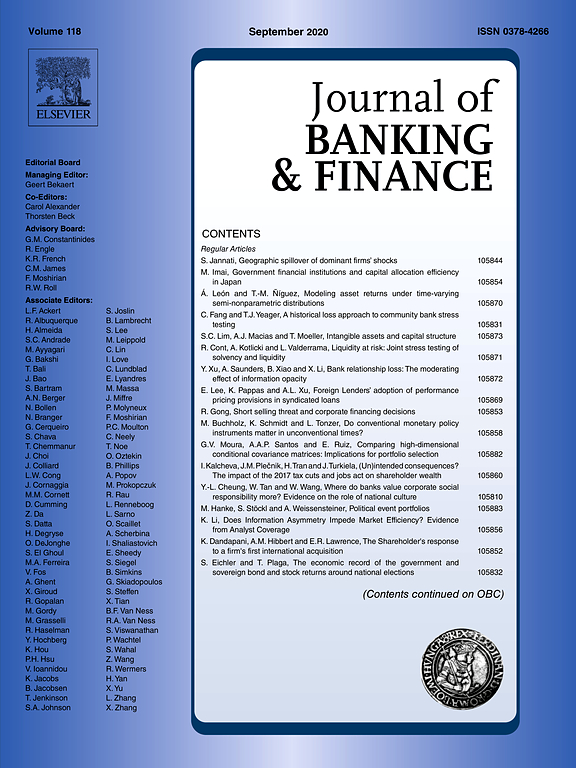
Interactions Between Bank Levies and Corporate Taxes: How is Bank Leverage Affected?
Regulatory bank levies set incentives for banks to reduce leverage. At the same time, corporate income taxation makes funding through debt more attractive. In this paper, we explore how regulatory levies affect bank capital structure, depending on corporate income taxation. Based on bank balance sheet data from 2006 to 2014 for a panel of EU-banks, our analysis yields three main results: The introduction of bank levies leads to lower leverage as liabilities become more expensive. This effect is weaker the more elevated corporate income taxes are. In countries charging very high corporate income taxes, the incentives of bank levies to reduce leverage turn insignificant. Thus, bank levies can counteract the debt bias of taxation only partially.





